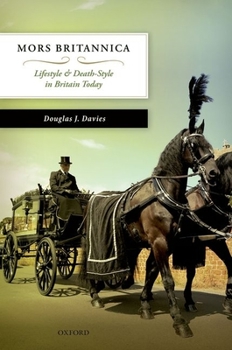Mors Britannica C
A people's lifestyle is one thing, their death-style another. The proximity or distance between such styles says much about a society, not least in Britain today. Mors Britannica takes up this style-issue in a society where cultural changes involve distinctions between traditional religion, secularization, and emergent forms of spirituality, all of which involve emotions, where fear, longing, and a sense of loss rise in waves when death marks the root embodiment of our humanity. These world-orientations, evident in older and newer ritual practices, engage death in the hope and desire that love, relationships, community, and human identity be not rendered meaningless. Yet both emotions and ritual have an uneasiness to them because "death" is a slippery topic as the twenty-first century gets under way in Britain. In this work, Douglas J. Davies draws from a largely anthropological-sociological perspective, with consideration of history, literature, philosophy, psychology, and theology, to provide a window into British life and insights into the foundation links between individuals and society, across the spectrum of traditionally religious views through to humanist and secular alternatives. He considers memorial sites (from churchyards to roadside memorials); forms of corporeal disposal (from cremation to composting); and death rites in a range of religious and secular traditions.
Format:Hardcover
Language:English
ISBN:0199644977
ISBN13:9780199644971
Release Date:January 2016
Publisher:Academic
Length:438 Pages
Weight:1.75 lbs.
Dimensions:1.2" x 6.2" x 9.3"
Customer Reviews
0 rating





